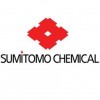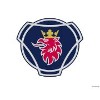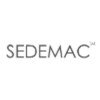Production Associate
40+ Production Associate Interview Questions and Answers

Asked in Godrej Industries

Q. What are the effects of closing the discharge of a reciprocating pump while it is running compared to the effects of closing the discharge of a centrifugal pump in the same condition?
Closing the discharge of a pump affects performance and safety differently for reciprocating and centrifugal pumps.
Reciprocating Pump: Closing the discharge can cause a rapid increase in pressure, potentially leading to damage or failure of the pump.
Centrifugal Pump: Closing the discharge typically results in a decrease in flow and can lead to cavitation, which damages the impeller.
Pressure Relief: Reciprocating pumps often require pressure relief valves to prevent overpressu...read more

Asked in Hatsun Agro Product

Q. Why does milk lose temperature when in the hands of farmers?
Milk loses temperature when in farmers hands due to heat transfer from the warm hands to the cooler milk.
Heat transfer occurs from the warm hands of the farmer to the cooler milk, causing the milk to lose temperature.
The milk may also lose temperature due to evaporation when exposed to the warmer environment outside the storage tank.
Proper handling techniques, such as using insulated containers or gloves, can help minimize milk temperature loss.
Production Associate Interview Questions and Answers for Freshers

Asked in Hatsun Agro Product

Q. What is Food Safety? What are the basic hazards?
Food safety refers to practices and procedures that ensure food is safe to eat by preventing contamination and foodborne illnesses.
Food safety involves proper handling, storage, and preparation of food to prevent contamination.
Basic hazards include biological hazards (e.g. bacteria, viruses), chemical hazards (e.g. cleaning agents, pesticides), and physical hazards (e.g. glass, metal fragments).
Examples of biological hazards include Salmonella and E. coli bacteria, chemical h...read more

Asked in Ford Business Solutions

Q. How reduce of cost , how to improve quality How to productivity
To reduce cost, improve quality and productivity, focus on process optimization, waste reduction, and employee training.
Identify and eliminate waste in the production process
Implement lean manufacturing principles
Invest in employee training and development
Use data analysis to identify areas for improvement
Streamline supply chain management
Implement quality control measures
Use technology to automate processes
Encourage employee feedback and suggestions

Asked in Cummins

Q. What is the difference between a 2-stroke and a 4-stroke engine?
2-stroke engines have a power stroke every revolution, while 4-stroke engines have a power stroke every other revolution.
2-stroke engines are simpler and lighter than 4-stroke engines.
2-stroke engines have a higher power-to-weight ratio than 4-stroke engines.
2-stroke engines require a mixture of oil and fuel, while 4-stroke engines have separate oil and fuel systems.
4-stroke engines are more fuel-efficient and produce less pollution than 2-stroke engines.
Examples of 2-stroke ...read more

Asked in Godrej Industries

Q. What are the working principles of steam ejectors and water ejectors?
Steam and water ejectors are devices that use fluid dynamics to create a vacuum or move gases by utilizing high-velocity jets.
Operating Principle: Both steam and water ejectors operate on the principle of jet propulsion, where a high-velocity fluid creates a low-pressure area.
Steam Ejectors: Utilize steam as the driving fluid, commonly used in industrial applications for vacuum generation, such as in distillation processes.
Water Ejectors: Use water as the driving fluid, often...read more
Production Associate Jobs




Asked in Godrej Industries

Q. What is the permit system, and what are the different types of permits?
The permit system regulates activities requiring official approval, ensuring safety and compliance with laws.
Construction Permits: Required for building projects, ensuring compliance with zoning laws and safety standards.
Environmental Permits: Necessary for activities that may impact the environment, such as waste disposal or emissions.
Health Permits: Required for businesses like restaurants to ensure they meet health and safety regulations.
Special Event Permits: Needed for o...read more

Asked in Godrej Industries

Q. What is the difference between reciprocating pumps and centrifugal pumps?
Reciprocating pumps use a piston mechanism for fluid movement, while centrifugal pumps rely on rotational energy from impellers.
Operating Principle: Reciprocating pumps use pistons to create a vacuum and draw fluid, while centrifugal pumps use rotating impellers to move fluid.
Flow Rate: Reciprocating pumps provide a constant flow rate, ideal for high-pressure applications, whereas centrifugal pumps vary flow based on system pressure.
Applications: Reciprocating pumps are often...read more
Share interview questions and help millions of jobseekers 🌟


Asked in Sanofi

Q. Genetically modified microorganisms' examples?
Genetically modified microorganisms are organisms whose genetic material has been altered using genetic engineering techniques.
Bt corn, which produces a protein toxic to certain insects
Golden rice, which is engineered to produce beta-carotene
Yeast engineered to produce insulin
E. coli bacteria engineered to produce human growth hormone

Asked in Ubreathe

Q. different types of turbines and their application.
Turbines are used to convert kinetic energy into mechanical energy. There are different types of turbines used in various applications.
Steam turbines are used in power plants to generate electricity.
Gas turbines are used in aircraft engines and power plants.
Hydro turbines are used in hydroelectric power plants to generate electricity from water.
Wind turbines are used to generate electricity from wind energy.
Francis turbines are used in hydroelectric power plants for medium he...read more

Asked in Ubreathe

Q. types of gears and their manufacturing processes.
Gears are classified into various types based on their shape, size, and application. The manufacturing process also varies accordingly.
Spur gears are the most common type and are made by hobbing or shaping.
Helical gears have angled teeth and are made by hobbing or shaping.
Bevel gears have conical teeth and are made by cutting or forging.
Worm gears have a screw-like shape and are made by hobbing or milling.
Gear manufacturing processes include hobbing, shaping, milling, forging...read more

Asked in Tata Motors

Q. What is the least count of a Vernier caliper?
The least count of a Vernier caliper is typically 0.1 mm or 0.02 mm.
The least count is the smallest measurement that can be read on the scale of the caliper.
It depends on the design and precision of the caliper.
For example, a standard Vernier caliper may have a least count of 0.1 mm, while a digital caliper may have a least count of 0.02 mm.

Asked in Bsquare Consultants

Q. How would you handle customers?
I handle customers with empathy, effective communication, and problem-solving skills to ensure satisfaction and build trust.
Listen actively to understand customer needs and concerns.
Use clear and concise language to explain processes or solutions.
Stay calm and composed, even in challenging situations, to maintain professionalism.
Provide timely follow-ups to ensure customer issues are resolved.
Example: When a customer had a complaint about a delayed order, I listened, apologiz...read more

Asked in Sumitomo Chemical

Q. What are the different types of distillation?
Distillation is a separation process that relies on differences in boiling points to purify or separate liquids.
Simple Distillation: Used for separating a liquid from a solution, such as purifying water from saltwater.
Fractional Distillation: Separates mixtures with close boiling points, like separating components of crude oil into gasoline and diesel.
Steam Distillation: Utilizes steam to extract essential oils from plants, commonly used in the fragrance industry.
Vacuum Disti...read more

Asked in Godrej Industries

Q. What is vacuum distillation, and how does it work?
Vacuum distillation is a separation process that lowers the boiling point of liquids by reducing pressure, allowing for efficient distillation.
Lower Boiling Points: By reducing the pressure, vacuum distillation allows substances to boil at lower temperatures, which is ideal for heat-sensitive materials.
Separation of Components: It is commonly used to separate mixtures of liquids with close boiling points, such as in the petrochemical industry.
Applications: Vacuum distillation...read more

Asked in Quality Austria Central Asia

Q. What is PDI? What is final inspection?
PDI stands for Pre-Delivery Inspection. Final inspection is the last step in the quality control process before the product is shipped.
PDI is a thorough inspection of a product before it is delivered to the customer
It ensures that the product meets all the quality standards and specifications
Final inspection is the last step in the quality control process
It involves checking the product for any defects or issues before it is shipped to the customer
Final inspection is crucial ...read more

Asked in Sanofi

Q. How does vaccination work?
Vaccination works by introducing a weakened or inactive form of a pathogen into the body to stimulate the immune system to produce antibodies.
Vaccines contain either weakened or inactive forms of a virus or bacteria
When the vaccine is administered, the immune system recognizes the pathogen as foreign and produces antibodies to fight it
These antibodies remain in the body, providing immunity if the person is exposed to the actual pathogen in the future

Asked in Sanofi

Q. What is CRISPR technology?
CRISPR technology is a revolutionary gene-editing tool that allows scientists to make precise changes to an organism's DNA.
CRISPR stands for Clustered Regularly Interspaced Short Palindromic Repeats
It uses a protein called Cas9 to cut DNA at specific locations
CRISPR technology has a wide range of applications, from correcting genetic disorders to creating genetically modified organisms

Asked in BNY

Q. What is the main difference between Java and C++?
Java is platform-independent, object-oriented language while C++ is platform-dependent, procedural language.
Java is platform-independent, meaning it can run on any platform with the help of Java Virtual Machine (JVM)
C++ is platform-dependent, meaning the code needs to be compiled separately for each platform
Java is an object-oriented language with features like inheritance, encapsulation, and polymorphism
C++ is a procedural language with support for object-oriented programmin...read more

Asked in DIVI'S Laboratories

Q. What is azeotropic distillation?
Azeotropic distillation is a process used to separate two or more liquids with similar boiling points by adding a third component.
It involves the use of a third component, called an entrainer, to break the azeotrope (constant boiling point) of the two liquids being separated.
The entrainer forms a new azeotrope with one of the liquids, allowing the other liquid to be separated.
Azeotropic distillation is commonly used in the production of ethanol, where benzene is used as an en...read more

Asked in Hatsun Agro Product

Q. What is HACCP and what are its 7 principles?
HACCP is a systematic approach to food safety that identifies, evaluates, and controls hazards throughout the production process.
HACCP stands for Hazard Analysis and Critical Control Points.
The 7 principles of HACCP are: Conduct Hazard Analysis, Determine Critical Control Points (CCPs), Establish Critical Limits, Monitor CCPs, Establish Corrective Actions, Verify Procedures, Maintain Records.
Example: In a food production facility, HACCP would involve identifying potential haz...read more

Asked in CARS24

Q. What is the difference between a petrol and diesel engine?
Petrol engines use spark ignition while diesel engines use compression ignition.
Petrol engines use a spark plug to ignite the fuel-air mixture while diesel engines compress the air to a high temperature and pressure to ignite the fuel.
Petrol engines are generally more powerful and responsive while diesel engines are more fuel-efficient and have more torque.
Petrol engines are lighter and quieter while diesel engines are heavier and noisier.
Petrol engines are more suitable for ...read more

Asked in Mitsubishi Electric India

Q. What do you know about Hooke's Law?
Hook's law states that the force needed to extend or compress a spring by a certain distance is directly proportional to that distance.
Describes the relationship between force and extension/compression of a spring
Mathematically represented as F = kx, where F is the force, k is the spring constant, and x is the displacement
Used in various fields such as engineering, physics, and material science

Asked in SRF

Q. What is distillation?
Distillation is a process of separating components of a mixture based on their boiling points.
It involves heating the mixture to vaporize the component with the lowest boiling point.
The vapor is then cooled and condensed back into a liquid, which is collected as the distillate.
This process is commonly used in the production of alcoholic beverages, petroleum refining, and water purification.
Fractional distillation is a variation of distillation that is used to separate compone...read more
Asked in SUPER HYGIENE PRODUCTS

Q. What are the different types of engine oil?
Engine oil is classified into various types based on viscosity, base oil, and additives, each serving specific engine needs.
1. Mineral Oil: Derived from refining crude oil, suitable for older engines.
2. Synthetic Oil: Man-made oils offering better performance and protection, ideal for high-performance engines.
3. Semi-Synthetic Oil: A blend of mineral and synthetic oils, providing a balance of cost and performance.
4. High Mileage Oil: Formulated for vehicles with over 75,000 m...read more

Asked in Hatsun Agro Product

Q. Describe the milk processing procedure.
Milk processing involves pasteurization, homogenization, and packaging to ensure safety and quality.
Milk is first pasteurized to kill harmful bacteria and extend shelf life.
Homogenization breaks down fat molecules to create a uniform texture.
After processing, milk is packaged in various forms such as cartons, bottles, or bags.
Different types of milk products like skim milk, whole milk, and flavored milk are produced through processing.

Asked in Scania

Q. Tell me about your problem-solving methods.
Effective problem-solving methods involve identifying issues, analyzing options, and implementing solutions systematically.
Define the problem clearly: For example, if production is delayed, identify the specific bottleneck.
Gather relevant data: Analyze production metrics to understand where inefficiencies lie.
Brainstorm potential solutions: Engage the team to generate ideas, such as adjusting workflows or reallocating resources.
Evaluate options: Consider the pros and cons of ...read more

Asked in Sterlite Technologies

Q. What is fiber types of fiber?
Fiber is a type of carbohydrate that the body cannot digest. There are two main types of fiber: soluble and insoluble.
Soluble fiber dissolves in water and can help lower cholesterol and regulate blood sugar levels. Examples include oats, beans, and fruits.
Insoluble fiber does not dissolve in water and helps with digestion by adding bulk to the stool. Examples include whole grains, nuts, and vegetables.

Asked in Sedemac Mechatronics

Q. What is Insulator,Conductor etc
Insulators are materials that do not easily allow the flow of electricity, while conductors are materials that allow the flow of electricity.
Insulators have high resistance to electrical current.
Conductors have low resistance to electrical current.
Examples of insulators: rubber, glass, plastic.
Examples of conductors: copper, aluminum, gold.

Asked in Saint Gobain Glass

Q. What is a centrifugal pump?
A centrifugal pump is a mechanical device that uses centrifugal force to move fluids through a piping system.
It works by converting rotational kinetic energy into hydrodynamic energy.
Fluid enters the pump through the center of a rotating impeller and is flung outward by centrifugal force.
The fluid then exits the pump through a discharge nozzle.
Centrifugal pumps are commonly used in industries such as oil and gas, chemical processing, and water treatment.
Examples of centrifuga...read more
Interview Questions of Similar Designations
Interview Experiences of Popular Companies






Calculate your in-hand salary
Confused about how your in-hand salary is calculated? Enter your annual salary (CTC) and get your in-hand salary


Reviews
Interviews
Salaries
Users










